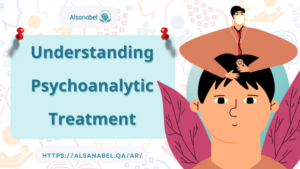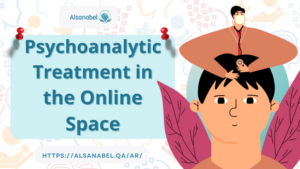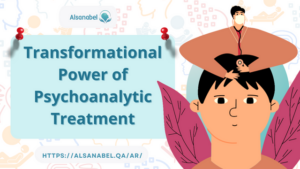Unveiling the Power of Psychoanalytic Treatment 2024
- Category best online psychiatry
In this blog post, we will delve into the power and transformative potential of psychoanalytic treatment. You will gain insight into the importance of the unconscious mind, the therapeutic relationship, and the long-lasting effects of this form of therapy. Additionally, we will explore the rise of online services and how they have made this treatment accessible and convenient. So, let’s embark on a journey to uncover the many benefits of this treatment and discover the possibilities offered by online services.
The rise of online psychiatry services
In today’s digital age, the rise of online psychiatry services has made this treatment more accessible than ever before. With the convenience of virtual visits, individuals can now access professional help and engage in this treatment from the comfort of their own homes. The use of secure online platforms allows for confidential and private sessions, ensuring that individuals feel safe and supported throughout their therapeutic journey. This increased accessibility has opened up new possibilities for individuals seeking that treatment, allowing them to receive the transformative benefits of this approach to therapy regardless of their location or schedule constraints.
Understanding Psychoanalytic Treatment
Psychoanalytic treatment is a therapeutic process designed to help individuals understand and resolve their psychological problems by delving into their unconscious mind. Founded by Sigmund Freud, it seeks to uncover how unconscious thoughts affect behavior and emotions. The treatment involves techniques such as free association, where patients speak whatever comes to mind, and dream analysis, to interpret the meaning behind dreams.

Unconscious mind and the role of childhood experiences
The unconscious mind and childhood experiences hold significant importance in psychoanalytic theory. The unconscious mind is a reservoir of feelings, thoughts, urges, and memories outside of our conscious awareness. Freud proposed that the unconscious mind influences much of our behavior and emotional life.
Childhood experiences are crucial in shaping our personality and psychological development. Freud believed that early life events, particularly those between the ages of zero and six, play a pivotal role in the formation of our unconscious motivations and conflicts. These early experiences can affect the way we form relationships, our self-esteem, and our overall mental health.
In a psychoanalytic context, therapists often look for connections between childhood events and adult behavior to understand a patient’s current issues, with the goal to uncover and resolve these unconscious conflicts, which can lead to symptom relief and personal growth.
Therapeutic relationship and the use of free association
The therapeutic relationship between the psychoanalyst and the patient is crucial for successful treatment. It provides a safe and supportive environment where patients can explore their thoughts, emotions, and experiences. Free association, a technique used in psychoanalytic treatment, encourages patients to express their thoughts and feelings without censorship, allowing for a deeper understanding of their unconscious mind. This process helps uncover hidden patterns, conflicts, and traumas, leading to personal growth and healing.
The Benefits of Psychoanalytic Treatment
Psychoanalytic treatment offers numerous benefits for individuals seeking personal growth and healing. Through this therapy, you can gain insight into your thoughts, emotions, and behaviors, leading to a deeper understanding of yourself. This process can ultimately foster long-lasting positive changes in your mental well-being.
Some benefits of psychoanalytic treatment
- Insight and Self-awareness: It aims to help individuals gain deeper insights into their unconscious thoughts, emotions, and behaviors. This self-awareness can lead to a better understanding of oneself and the root causes of psychological issues.
- Resolution of Unconscious Conflicts: By exploring and addressing unconscious conflicts, it can help individuals resolve internal struggles that may be contributing to their psychological symptoms.
- Improved Relationships: Understanding one’s own unconscious motivations and patterns can lead to improved relationships with others. By resolving underlying issues, individuals may communicate more effectively and form healthier connections.
- Emotional Growth: It can facilitate emotional growth and personal development. By working through unresolved issues, individuals can experience emotional healing and increased resilience.
- Symptom Relief: Addressing underlying unconscious conflicts can help alleviate psychological symptoms such as anxiety, depression, and other mental health issues.
- Long-lasting Change: It aims to create lasting changes by delving into deep-rooted issues rather than focusing solely on surface symptoms. This can lead to more profound and sustainable improvements in mental well-being.
- Enhanced Coping Strategies: Through psychoanalytic therapy, individuals can develop healthier coping strategies to deal with challenges and stressors in their lives.
Overall, psychoanalytic treatment offers a comprehensive and holistic approach to understanding and addressing psychological issues, with the goal of promoting long-term emotional well-being and personal growth.
The Rise of Online Psychiatry Services
Online psychiatry is a form of mental healthcare that allows individuals to connect with licensed psychiatrists through virtual platforms. Advantages include increased accessibility, convenience, flexible appointment times, and the ability to receive necessary mental health support from any location.
The rise of online psychiatry services has revolutionized the field of mental healthcare, providing individuals with convenient and accessible options for receiving psychoanalytic treatment. Online psychiatry allows individuals to connect with licensed psychiatrists through virtual platforms, eliminating the need for in-person visits.
Online psychiatry and its advantages
Telepsychiatry, refers to providing mental health services remotely through digital platforms such as video calls, phone calls, or messaging. Some advantages of online psychiatry include:
- Accessibility: It makes mental health services more accessible to individuals who may have difficulty traveling to in-person appointments due to physical disabilities, geographical limitations, or time constraints.
- Convenience: Patients can receive therapy sessions from the comfort of their own homes, eliminating the need to commute to a clinic or office. This convenience can reduce stress and make it easier for individuals to prioritize mental health care.
- Increased Privacy: It can offer a sense of privacy and confidentiality for individuals who may feel uncomfortable seeking mental health services in person. This can lower barriers to seeking help and encourage more people to access care.
- Flexibility: Telepsychiatry allows for more flexibility in scheduling appointments, making it easier for individuals to find time for therapy sessions amidst their busy schedules. This can lead to better engagement with treatment.
- Continuity of Care: It can facilitate continuity of care for individuals who may need ongoing mental health support. Even if a patient moves to a different location, they can continue their therapy sessions with the same provider through telepsychiatry.
- Cost-Effective: In some cases, it may be more cost-effective than traditional in-person therapy, as it eliminates the need for commuting and may result in lower service fees.
- Remote Monitoring: It can enable remote monitoring of patients’ progress and well-being, allowing for more frequent check-ins and adjustments to treatment plans as needed.
Psychoanalytic Treatment in the Online Space
In the online space, psychoanalytic treatment can be conducted through virtual platforms. This allows individuals to engage in therapy sessions from the comfort of their own homes. Online psychoanalytic treatment offers convenience and accessibility, making it an effective option for those seeking mental health support.

How psychoanalytic treatment can be conducted through online platforms
Psychoanalytic treatment can be conducted through online platforms, also known as telepsychoanalysis, with certain adaptations to accommodate the virtual setting. Here are some key considerations:
- Video Conferencing: The use of secure video conferencing platforms allows for face-to-face interactions between the patient and the psychoanalyst. This visual connection can help establish a therapeutic relationship and facilitate non-verbal communication cues.
- Secure Communication: Ensuring the confidentiality and security of online communication is essential in this treatment. Patients and therapists should use encrypted platforms to protect sensitive information.
- Establishing Boundaries: Clear boundaries should be established regarding session timings, interruptions, and the use of technology during sessions to maintain the therapeutic frame.
- Technical Support: Patients and therapists should have access to technical support in case of any connectivity issues or disruptions during sessions to minimize disruptions to the treatment process.
- Psychoanalytic Techniques: Despite the virtual setting, traditional psychoanalytic techniques such as free association, dream analysis, and transference can still be utilized effectively to explore unconscious thoughts and emotions.
- Managing Transference and Countertransference: Therapists must be attentive to transference and countertransference dynamics that may arise during online sessions and address them appropriately within the therapeutic process.
- Regular Sessions: Consistent scheduling of sessions is important to maintain the continuity and depth of the psychoanalytic work. Patients and therapists should aim for regular sessions to support the therapeutic process.
By adhering to these considerations and adapting traditional psychoanalytic principles to the online setting, psychoanalytic treatment can be effectively conducted through virtual platforms, providing individuals with access to in-depth psychological exploration and support from qualified therapists, regardless of their geographical location.
Challenges of Online Psychoanalytic Treatment
- Limited Nonverbal Cues: The virtual nature of online psychoanalytic may limit the therapist’s ability to pick up on nonverbal cues and subtle body language, which are important in traditional face-to-face psychoanalytic sessions.
- Technology Issues: Technical glitches, internet connectivity problems, and digital distractions can disrupt the flow of online psychoanalytic sessions, impacting the therapeutic process.
- Confidentiality Concerns: Ensuring the privacy and confidentiality of online sessions can be challenging, as digital platforms may be susceptible to security breaches or data leaks.
- Lack of Physical Presence: The absence of physical presence in online therapy sessions may diminish the sense of connection and intimacy between the patient and therapist, affecting the therapeutic relationship.
- Difficulty in Establishing Boundaries: Establishing and maintaining therapeutic boundaries, a vital aspect of psychoanalytic treatment, may be more challenging in the online setting where the lines between personal and professional spaces can blur.
Benefits of Online Psychoanalytic Treatment
- Accessibility: Online psychoanalytic offers greater accessibility to individuals who may have mobility issues, live in remote areas, or have limited access to traditional mental health services.
- Convenience: The convenience of virtual therapy sessions eliminates the need for travel and allows patients to receive treatment from the comfort of their own homes, accommodating busy schedules.
- Cost-Effectiveness: Online psychoanalytic may be more cost-effective for patients as it reduces expenses related to commuting and other logistical arrangements associated with in-person therapy.
- Flexibility: Online therapy provides flexibility in scheduling appointments, making it easier for individuals to attend sessions at times that suit them best, fostering greater engagement in the treatment process.
- Continuity of Care: Online psychoanalytic offers seamless continuity of care, allowing patients to maintain their therapeutic journey even when facing challenges such as relocation or travel restrictions.
By understanding and addressing these challenges while harnessing the benefits of online psychoanalytic treatment, individuals can access effective mental health support and engage in meaningful therapeutic processes, tailored to their unique needs and circumstances.
Choosing the Best Online Psychiatry Service
When selecting the best online psychiatry service, consider the psychiatrist’s credentials, experience, and specialization. Take into account user reviews and testimonials to ensure a reputable and reliable experience. Research resources and platforms for recommendations on finding the best online psychiatry services.
Factors to Consider
When choosing the best online psychiatry service, consider the following factors:
- Credentials and Experience: Ensure that the psychiatrists are licensed, experienced, and have specialized training in telepsychiatry.
- Privacy and Security: Look for platforms that prioritize patient confidentiality and use secure, encrypted communication channels to protect personal information.
- Range of Services: Check if the online psychiatry service offers a comprehensive range of mental health services to meet your specific needs, such as therapy, medication management, and crisis intervention.
- Cost and Insurance Coverage: Understand the cost of sessions, including any insurance coverage or out-of-pocket expenses. Compare pricing plans and payment options.
- Ease of Use: Choose a user-friendly platform that is easy to navigate and offers seamless communication with psychiatrists through video calls, messaging, or phone calls.
- Availability and Accessibility: Consider the availability of appointments, response times for inquiries, and the ability to schedule sessions at convenient times that fit your schedule.
- Therapist Matching: Look for services that offer therapist matching based on your preferences, such as specialization, language proficiency, and therapy approach.
- Reviews and Recommendations: Read online reviews and seek recommendations from trusted sources to gauge the quality of care and patient satisfaction with the online psychiatry service.
- Regulatory Compliance: Ensure that the online psychiatry service complies with legal and ethical standards, including adherence to telehealth regulations and guidelines.
- Cultural Competency: Choose a service that values cultural diversity and offers therapists who understand and respect your background, beliefs, and values.
By carefully considering these factors, you can select the best online psychiatry service that aligns with your needs, preferences, and ensures that you receive quality mental health care tailored to your individual requirements.
Transformational Power of Psychoanalytic Treatment
Psychoanalytic treatment offers individuals the opportunity to gain insight into their thoughts, emotions, and behaviors, leading to transformative changes in their mental well-being. Its benefits include improved self-awareness, resolution of past traumas, and the development of healthier coping mechanisms.

Through online psychiatry services, individuals can access these transformative benefits conveniently and confidentially. Consider exploring the power of psychoanalytic treatment and the guidance of a reputable online psychiatrist for a journey towards better mental health.
In conclusion, psychoanalytic treatment has the power to transform lives by providing insights into thoughts, emotions, and behaviors. Online psychiatry services offer convenience and accessibility, making it a viable option for those seeking psychoanalytic treatments. Consider exploring the benefits of online therapy and the guidance of a reputable online psychiatrist for a transformative journey towards better mental well-being.









